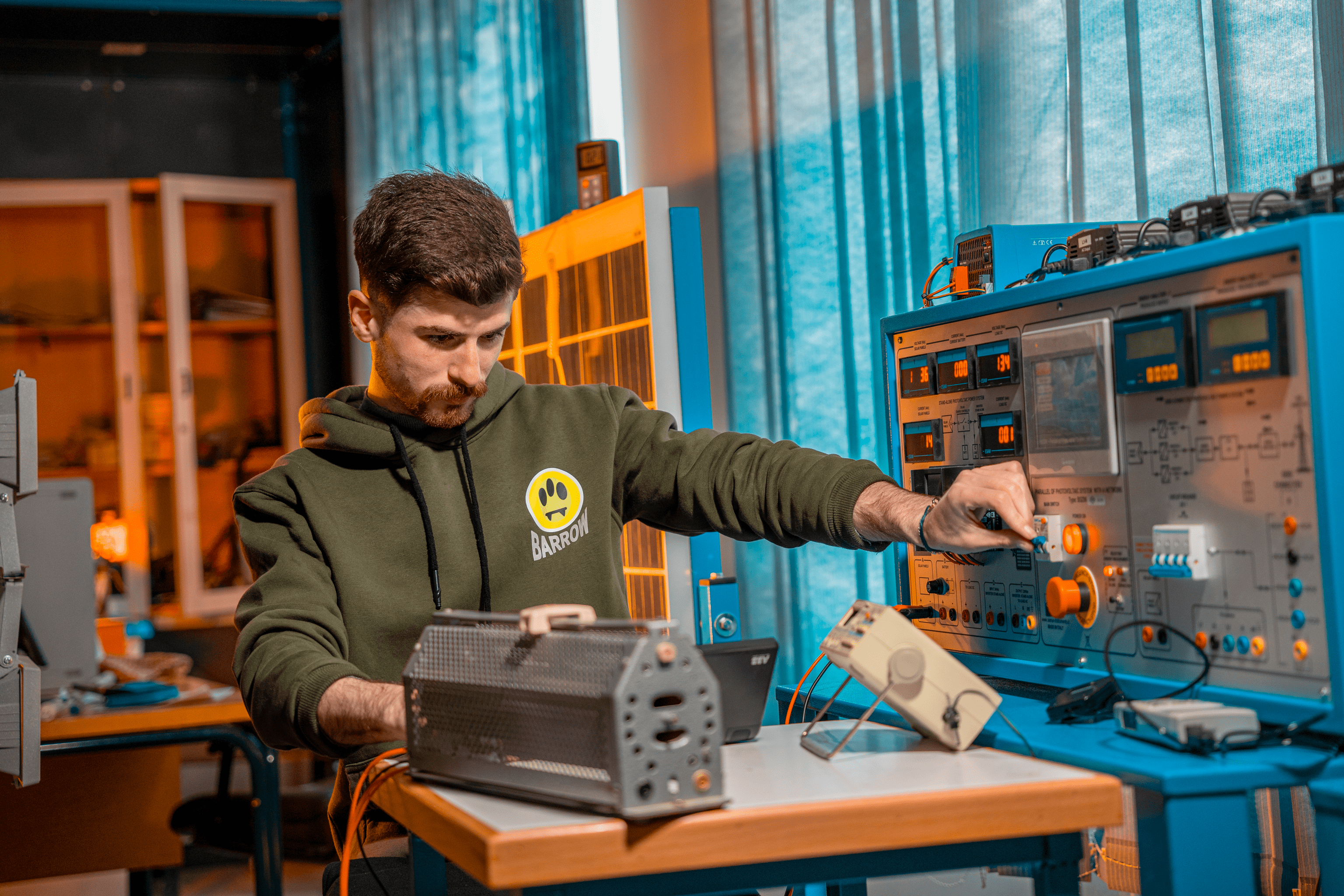Al-Ahliyya Amman University
Program Description
Electrical Engineering
Bachelor
Electrical Engineering major is one of the most remarkable and oldest engineering programs in the world. Due to the local and regional labor market need for the electrical engineering program, it was introduced to the Faculty of Engineering in 2012. Electrical Engineering has a great importance in advancing technical development, as electrical engineers have an effective role in all development plans and their various engineering projects. Electrical engineers design, create and sustain various engineering facilities, such as electrical stations, transportation lines, and distribution networks, in addition to their active role in the design and management of various communication systems as well as engineering project management and cost analysis. Electrical engineers have several job opportunities available in various development fields, whether in government or private sectors in the local, regional, and global labor market.
The recent accreditation effort was successful and the Electrical Engineering Department has been accredited by the Engineering Accreditation Commission (EAC) of ABET in 2021.
Electrical Engineering
Number Of Credit Hours
160

Faculty of Engineering
Admission Requirements
Admission requirements of the Bachelor degree in the Electrical Engineering program include a High School Certificate or equivalent in the following:
80%
- Scientific
- Scientific - Medical Field
- Scientific - Engineering Field
- Industrial
Job Opportunities

- Electricity distribution
- Renewable energy
- Contracting (electromechanical)
- Sales of electrical equipment
- Development and maintenance of electrical equipment
Study Plans and Program Files
Educational Objectives

Program Educational Objectives (PEO's):
- PEO1.Identify, analyse, formulate, and solve electrical engineering problems associated with the workplace, both independently and in a multidisciplinary team environment.
- PEO2.Demonstrate commitment and progress in a continuous learning, professional development, and leadership.
- PEO3.Apply the acquired knowledge in serving the society and understand the professional and ethical responsibilities.

Student Outcomes (SO's):
- An ability to identify, formulate, and solve complex engineering problems by applying principles of engineering, science, and mathematics.
- An ability to apply engineering design to produce solutions that meet specified needs with consideration of public health, safety, and welfare, as well as global, cultural, social, environmental, and economic factors.
- An ability to communicate effectively with a range of audiences.
- An ability to recognize ethical and professional responsibilities in engineering situations and make informed judgments, which must consider the impact of engineering solutions in global, economic, environmental, and societal contexts.
- An ability to function effectively on a team whose members together provide leadership, create a collaborative and inclusive environment, establish goals, plan tasks, and meet objectives.
- An ability to develop and conduct appropriate experimentation, analyze and interpret data, and use engineering judgment to draw conclusions.
- An ability to acquire and apply new knowledge as needed, using appropriate learning strategies.
=
Educational Objectives and Students Outcomes:



